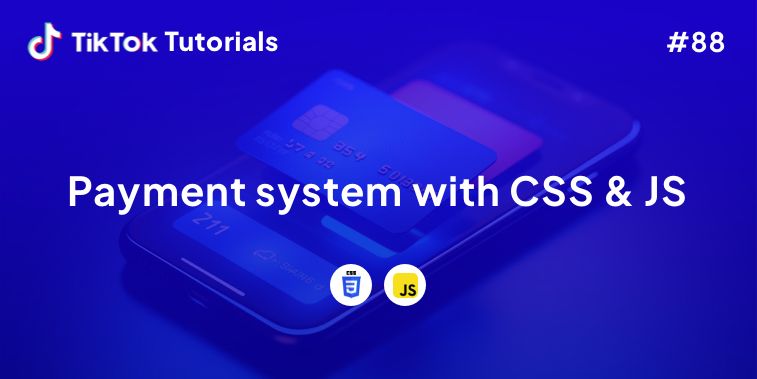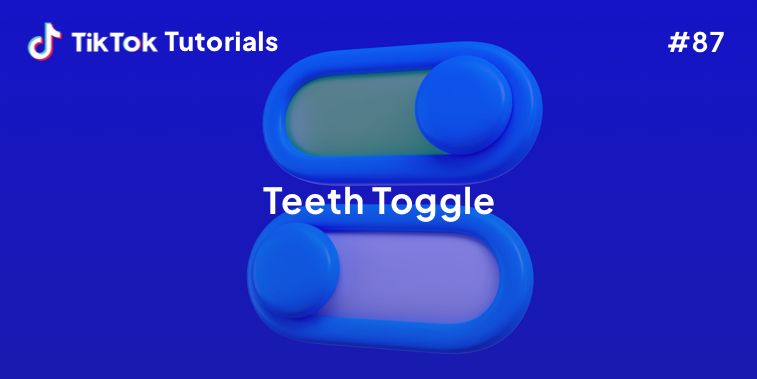Learn with us how to create an animated tab bar using CSS and Javascript!
If you found us on TikTok on the following post, check out this article and copy-paste the full code!
Happy coding! 😻
@creative.tim We did it! Check out the link in bio for the full code 🤩🤓 #csscoding #javascript #programmingexercises #webdev ♬ original sound - Creative Tim
HTML Code
Use this code to start your animated tab bar!
<menu class="menu">
<button class="menu__item active" style="--bgColorItem: #966DC5;">
<svg class="icon" viewBox="0 0 24 24">
<path d="M3.8,6.6h16.4" />
<path d="M20.2,12.1H3.8" />
<path d="M3.8,17.5h16.4" />
</svg>
</button>
<button class="menu__item" style="--bgColorItem: #f54888;">
<svg class="icon" viewBox="0 0 24 24">
<path d="M6.7,4.8h10.7c0.3,0,0.6,0.2,0.7,0.5l2.8,7.3c0,0.1,0,0.2,0,0.3v5.6c0,0.4-0.4,0.8-0.8,0.8H3.8
C3.4,19.3,3,19,3,18.5v-5.6c0-0.1,0-0.2,0.1-0.3L6,5.3C6.1,5,6.4,4.8,6.7,4.8z" />
<path d="M3.4,12.9H8l1.6,2.8h4.9l1.5-2.8h4.6" />
</svg>
</button>
<button class="menu__item" style="--bgColorItem: #4343f5;">
<svg class="icon" viewBox="0 0 24 24">
<path d="M3.4,11.9l8.8,4.4l8.4-4.4" />
<path d="M3.4,16.2l8.8,4.5l8.4-4.5" />
<path d="M3.7,7.8l8.6-4.5l8,4.5l-8,4.3L3.7,7.8z" />
</button>
<button class="menu__item" style="--bgColorItem: #e0b115;">
<svg class="icon" viewBox="0 0 24 24">
<path d="M5.1,3.9h13.9c0.6,0,1.2,0.5,1.2,1.2v13.9c0,0.6-0.5,1.2-1.2,1.2H5.1c-0.6,0-1.2-0.5-1.2-1.2V5.1
C3.9,4.4,4.4,3.9,5.1,3.9z" />
<path d="M4.2,9.3h15.6" />
<path d="M9.1,9.5v10.3" />
</button>
<button class="menu__item" style="--bgColorItem:#65ddb7;">
<svg class="icon" viewBox="0 0 24 24">
<path d="M5.1,3.9h13.9c0.6,0,1.2,0.5,1.2,1.2v13.9c0,0.6-0.5,1.2-1.2,1.2H5.1c-0.6,0-1.2-0.5-1.2-1.2V5.1
C3.9,4.4,4.4,3.9,5.1,3.9z" />
<path d="M5.5,20l9.9-9.9l4.7,4.7" />
<path d="M10.4,8.8c0,0.9-0.7,1.6-1.6,1.6c-0.9,0-1.6-0.7-1.6-1.6C7.3,8,8,7.3,8.9,7.3C9.7,7.3,10.4,8,10.4,8.8z" />
</svg>
</button>
<div class="menu__border"></div>
</menu>
<div class="svg-container">
<svg viewBox="0 0 202.9 45.5">
<clipPath id="menu" clipPathUnits="objectBoundingBox" transform="scale(0.0049285362247413 0.021978021978022)">
<path d="M6.7,45.5c5.7,0.1,14.1-0.4,23.3-4c5.7-2.3,9.9-5,18.1-10.5c10.7-7.1,11.8-9.2,20.6-14.3c5-2.9,9.2-5.2,15.2-7
c7.1-2.1,13.3-2.3,17.6-2.1c4.2-0.2,10.5,0.1,17.6,2.1c6.1,1.8,10.2,4.1,15.2,7c8.8,5,9.9,7.1,20.6,14.3c8.3,5.5,12.4,8.2,18.1,10.5
c9.2,3.6,17.6,4.2,23.3,4H6.7z" />
</clipPath>
</svg>
</div>
CSS Code
Continue with the CSS code and add life to your tab bar component!
html {
box-sizing: border-box;
--bgColorMenu : #1d1d27;
--duration: .7s;
}
html *,
html *::before,
html *::after {
box-sizing: inherit;
}
body{
margin: 0;
display: flex;
height: 100vh;
overflow: hidden;
align-items: center;
justify-content: center;
background-color: #ffb457;
-webkit-tap-highlight-color: transparent;
transition: background-color var(--duration);
}
.menu{
margin: 0;
display: flex;
/* Works well with 100% width */
width: 32.05em;
font-size: 1.5em;
padding: 0 2.85em;
position: relative;
align-items: center;
justify-content: center;
background-color: var(--bgColorMenu);
}
.menu__item{
all: unset;
flex-grow: 1;
z-index: 100;
display: flex;
cursor: pointer;
position: relative;
border-radius: 50%;
align-items: center;
will-change: transform;
justify-content: center;
padding: 0.55em 0 0.85em;
transition: transform var(--timeOut , var(--duration));
}
.menu__item::before{
content: "";
z-index: -1;
width: 4.2em;
height: 4.2em;
border-radius: 50%;
position: absolute;
transform: scale(0);
transition: background-color var(--duration), transform var(--duration);
}
.menu__item.active {
transform: translate3d(0, -.8em , 0);
}
.menu__item.active::before{
transform: scale(1);
background-color: var(--bgColorItem);
}
.icon{
width: 2.6em;
height: 2.6em;
stroke: white;
fill: transparent;
stroke-width: 1pt;
stroke-miterlimit: 10;
stroke-linecap: round;
stroke-linejoin: round;
stroke-dasharray: 400;
}
.menu__item.active .icon {
animation: strok 1.5s reverse;
}
@keyframes strok {
100% {
stroke-dashoffset: 400;
}
}
.menu__border{
left: 0;
bottom: 99%;
width: 10.9em;
height: 2.4em;
position: absolute;
clip-path: url(#menu);
will-change: transform;
background-color: var(--bgColorMenu);
transition: transform var(--timeOut , var(--duration));
}
.svg-container {
width: 0;
height: 0;
}
@media screen and (max-width: 50em) {
.menu{
font-size: .8em;
}
}
Javascript Code
Add the JS code and Voila!
// Original image:
// https://dribbble.com/shots/5619509-Animated-Tab-Bar
"use strict";
const body = document.body;
const bgColorsBody = ["#B497D6", "#ff96bd", "#9999fb", "#ffe797", "#cffff1"];
const menu = body.querySelector(".menu");
const menuItems = menu.querySelectorAll(".menu__item");
const menuBorder = menu.querySelector(".menu__border");
let activeItem = menu.querySelector(".active");
function clickItem(item, index) {
menu.style.removeProperty("--timeOut");
if (activeItem == item) return;
if (activeItem) {
activeItem.classList.remove("active");
}
item.classList.add("active");
body.style.backgroundColor = bgColorsBody[index];
activeItem = item;
offsetMenuBorder(activeItem, menuBorder);
}
function offsetMenuBorder(element, menuBorder) {
const offsetActiveItem = element.getBoundingClientRect();
const left =
Math.floor(
offsetActiveItem.left -
menu.offsetLeft -
(menuBorder.offsetWidth - offsetActiveItem.width) / 2
) + "px";
menuBorder.style.transform = `translate3d(${left}, 0 , 0)`;
}
offsetMenuBorder(activeItem, menuBorder);
menuItems.forEach((item, index) => {
item.addEventListener("click", () => clickItem(item, index));
});
window.addEventListener("resize", () => {
offsetMenuBorder(activeItem, menuBorder);
menu.style.setProperty("--timeOut", "none");
});
I hope you did find this tutorial useful!
For more web development or UI/UX design tutorials, follow us on:
Other useful resources:





